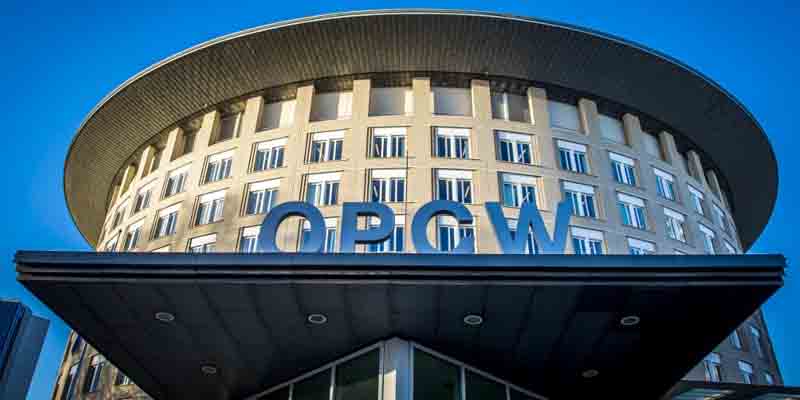- India
- Nov 28
Indian Chemical Council wins OPCW-The Hague Award
• Indian Chemical Council (ICC) and Algeria’s National Institute of Criminalistics and Criminology of the National Gendarmerie (NICC/NG) won the 2024 OPCW-The Hague Award.
• It was awarded during the 29th Session of the Conference of the States Parties of the Organisation for the Prohibition of Chemical Weapons (OPCW) at the Hague.
• The OPCW established the OPCW-The Hague Award in collaboration with the Municipality of The Hague in 2014.
• The Award recognises individuals and organisations that play a significant role in advancing the goals of the Chemical Weapons Convention. The total €90,000 cash prize is awarded to up to three recipients annually.
• This is the first time that the Award recognises the efforts of a chemical industry body.
• NICC/NG is a forensic science institute focused on advancing crime-fighting capabilities by integrating scientific methods into judicial and criminal processes.
Indian Chemical Council
• Indian Chemical Council (ICC) is the apex national body representing all branches of the chemical industry in India such as organic & inorganic chemicals, plastics, petrochemicals & petroleum refineries, dye stuff & dye-intermediates, fertilizers & pesticides, specialty chemicals, paints, etc.
• ICC represents more than 80 per cent of the chemical Industry which is valued at $220 billion.
• Its members include both Indian companies with a global presence as well as subsidiaries of multinationals.
• It was established as Indian Chemical Manufacturers Association in 1938 by Prafulla Chandra Ray & Rajmitra B.D. Amin, along with a group of Industrialists for promoting the interests of the nascent chemical industry.
• ICC is recognised for its role in promoting chemical safety, compliance with the Chemical Weapons Convention (CWC), and enhancing industry-wide security practices in India.
• Through initiatives like the CWC helpdesks, ICC has increased industry compliance and facilitated efficient e-filing for chemical declarations.
• Additionally, ICC’s ‘Nicer Globe’ initiative has had a substantial impact on chemical transportation safety in India, offering real-time monitoring and emergency response capabilities.
• ICC has conducted other activities to promote chemical safety and security through its ‘Responsible Care’ (RC) programme.
• ICC has become a full member of International Council of Chemical Associations (ICCA) whose members account for more than 90 per cent of global chemical sales.
Organisation for the Prohibition of Chemical Weapons (OPCW)
• The Organisation for the Prohibition of Chemical Weapons (OPCW) is the implementing body for the Chemical Weapons Convention.
• The OPCW, with its 193 Member States, oversees the global endeavour to permanently and verifiably eliminate chemical weapons.
• For its extensive efforts in eliminating chemical weapons, the OPCW received the 2013 Nobel Peace Prize.
• To honour this achievement, the OPCW established the OPCW-The Hague Award in 2014 in partnership with the Municipality of The Hague.
• In 2023, the OPCW verified that all chemical weapons stockpiles declared by the 193 States Parties to the Chemical Weapons Convention since 1997 — totalling 72,304 metric tonnes of chemical agents — have been irreversibly destroyed under the OPCW’s strict verification regime. This does not mean that chemical weapons do not exist anymore.
• The headquarters of OPCW is situated in The Hague, Netherlands.
Manorama Yearbook app is now available on Google Play Store and iOS App Store


